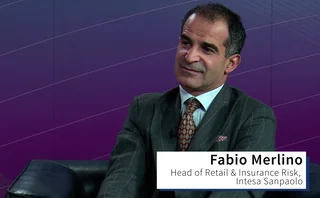
Derivatives counterparties shun Ford and GM
Few banks are now willing to enter derivatives trades with Ford and General Motors, leaving the struggling car manufacturers exposed to further risk.
In its annual report filed on February 26 with the Securities and Exchange Commission, Ford stated: "The global credit crisis and deterioration of our credit ratings have significantly reduced our ability to obtain derivatives to manage risks."
Meanwhile, General Motors revealed in its filing on March 5 that "most derivatives counterparties have already been and may continue to be unwilling to enter into transactions with the company due to its credit rating".
They both said that if they could not hedge their positions then large unfavourable changes in foreign exchange rates, commodity prices or interest rates could badly affect their businesses.
Their situation is unlikely to change in the short term, according to Standard & Poor's.
"We believe the [default] risk will remain high for all three Michigan-based automakers for 2009 and 2010 because of the dismal state of industry demand and other industry problems, such as the potential for supplier failures," said the rating agency in a statement from March 4.
Both are among the largest reference entities for credit default swaps (CDSs), and if one of them goes bankrupt it could have significant effects for the CDS market. According to data from the Depository Trust & Clearing Corporation's trade information warehouse, the gross notional amount of CDSs as of March 13 written on General Motors was $37.8 billion, while there was $35.1 billion written on Ford.
See also: CDS spreads on automakers widen after bail-out rejected
Autos and telecoms dominate CDS trading again
Only users who have a paid subscription or are part of a corporate subscription are able to print or copy content.
To access these options, along with all other subscription benefits, please contact info@risk.net or view our subscription options here: http://subscriptions.risk.net/subscribe
You are currently unable to print this content. Please contact info@risk.net to find out more.
You are currently unable to copy this content. Please contact info@risk.net to find out more.
Copyright Infopro Digital Limited. All rights reserved.
As outlined in our terms and conditions, https://www.infopro-digital.com/terms-and-conditions/subscriptions/ (point 2.4), printing is limited to a single copy.
If you would like to purchase additional rights please email info@risk.net
Copyright Infopro Digital Limited. All rights reserved.
You may share this content using our article tools. As outlined in our terms and conditions, https://www.infopro-digital.com/terms-and-conditions/subscriptions/ (clause 2.4), an Authorised User may only make one copy of the materials for their own personal use. You must also comply with the restrictions in clause 2.5.
If you would like to purchase additional rights please email info@risk.net
More on Infrastructure
Communications surveillance solutions 2024: market update
A report offering Chartis’ latest view of the vendor landscape for communications surveillance solutions
SIMONE, the AI that nearly took down a bank
An algorithm designed to create new structured products ran out of control last year with almost catastrophic consequences for a major bank, as our exclusive whistleblower account reveals
Revealed: where banks are (literally) warehousing their swaps
As derivatives notional grows, dealers experiment with novel storage solutions
E-trading takes hold for FX swaps – sort of
Bulk of trades are being executed over screen, but bolder changes have stalled
From DNA to DHA – Preparing for a new era of digital human augmentation
As technology increasingly permeates societies, cultures and everyday activities, its integration into people’s lives is having a profound impact on what is expected of people in the workplace. Deloitte examines this evolution of today’s workforce, the…
Risk and finance: Working more closely together
Video interview: Thomas Kimner, SAS
Video interview: Fabio Merlino, Intesa Sanpaolo
Fabio Merlino, head of retail and insurance risk discusses how the wealth management division of Intesa Sanpaolo upgraded its risk analytics capabilities with the algo system used by its proprietary traders
The changing face of Risk.net and our magazines
Extensive reader consultation has helped us reshape editorial teams and our site







